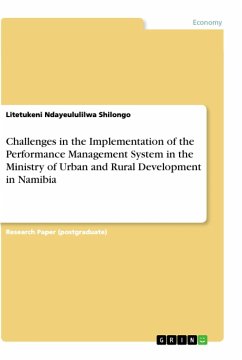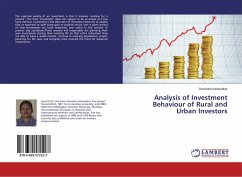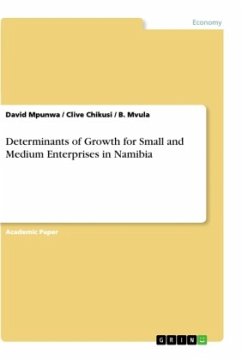Research Paper (postgraduate) from the year 2018 in the subject Business economics - Business Management, Corporate Governance, Midlands State University, course: DEGREE OF MASTERS OF COMMERCE IN STRATEGIC MANAGEMENT AND CORPORATE GOVERNANCE, language: English, abstract: The focus of this research was to identify the challenges hindering the implementation of the Performance Management System in Ministry of Urban and Rural Development. This study adopted a 'mixed method approach', which utilises quantitative data supported by qualitative data. The target population of this study included Top management level (Director, Deputy Director), Middle Supervisory level (Supervisor/ Chief) and staff members at a non- supervisory level. Stratified sampling was used to divide the population in to 3 stratums. The study further used purposive sampling to draw a sample of 52 employees from the population of 272 staff members while the qualitative interviews involved 4 participants. Quantitative data was analysed using descriptive analysis run on SPSS. Results indicated that the PMS challenges that the Ministry of Urban and Rural Development is facing are as a result of lack of goal-setting, poor alignment of personal objectives with organisational goals, lack of communication and strong leadership, lack of trainings and personal development, lack monitoring, reviews and performance feedback, lack of change management initiatives and no reward for exceptional performance. Based on the findings, the researcher recommends that there should be improvement in communication, construction of employee's awareness; top performers should be rewarded; realistic and achievable goals must be set for employees; employees should be involved in settings of their performance targets and lastly the institution should allocate sufficient budget. Finally it is recommended that further research must be conducted in the rest of OMAs in order to validate findings of this study.
Hinweis: Dieser Artikel kann nur an eine deutsche Lieferadresse ausgeliefert werden.
Hinweis: Dieser Artikel kann nur an eine deutsche Lieferadresse ausgeliefert werden.








